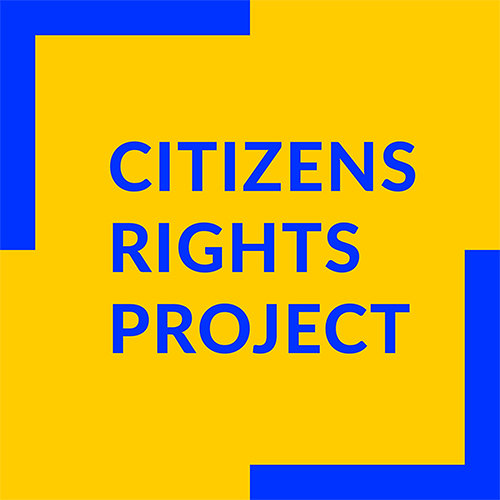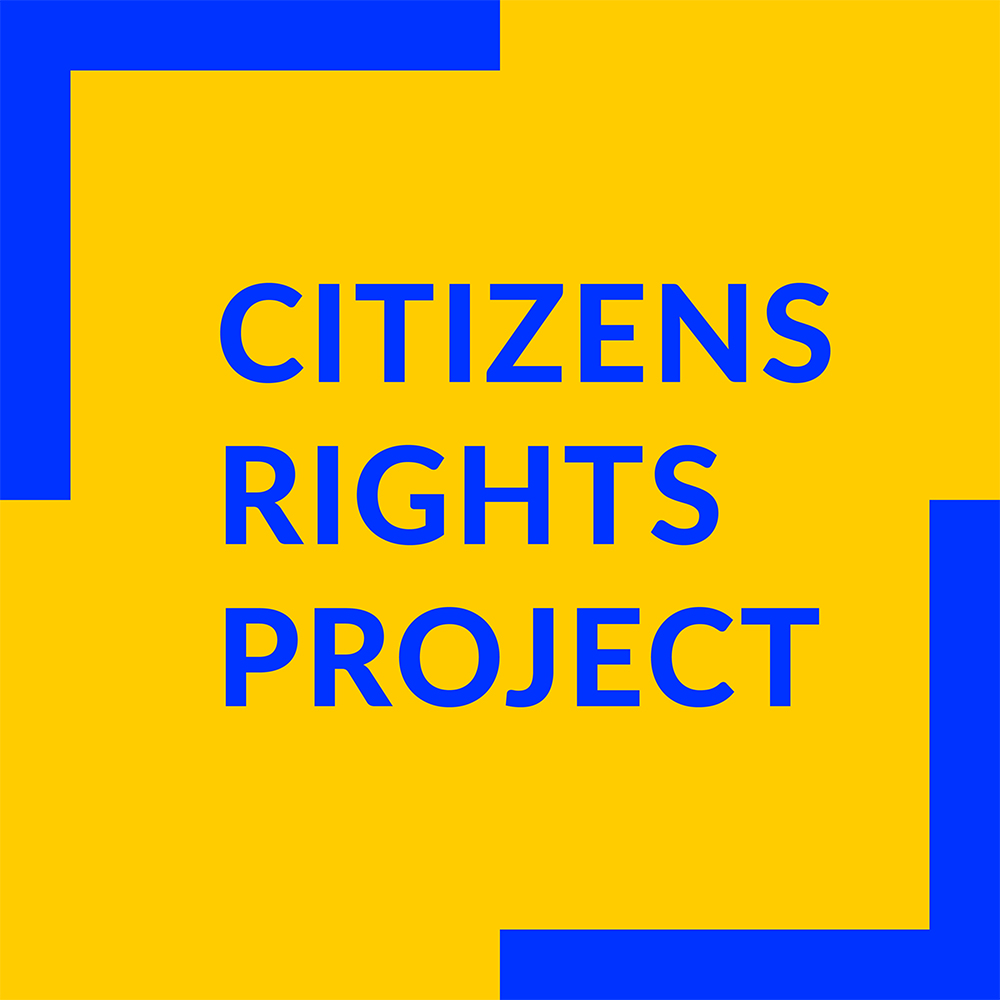On Thursday, March 14th, we had the pleasure of meeting with the Independent Monitoring Authority (IMA) at the Scottish Government offices to discuss recent challenges encountered by EU nationals and their families in Scotland. They were deeply interested in hearing firsthand experiences from the forefront of efforts to secure the right to reside for the most vulnerable individuals. Alongside other support organizations, we endeavored to provide them with the most current and relevant data available
After this meeting we moved to Augustine United Church for a drop-in session organised for EU nationals by IMA, Citizens Rights Project (CRP), and Settled, to allow members of the public to meet our organisations and learn more about our work and their rights that we are trying to protect. Numerous individuals had the chance to inquire about their rights, gain insights into the role of IMA, and we even seized the opportunity to assist a family of four in their application for settled status.
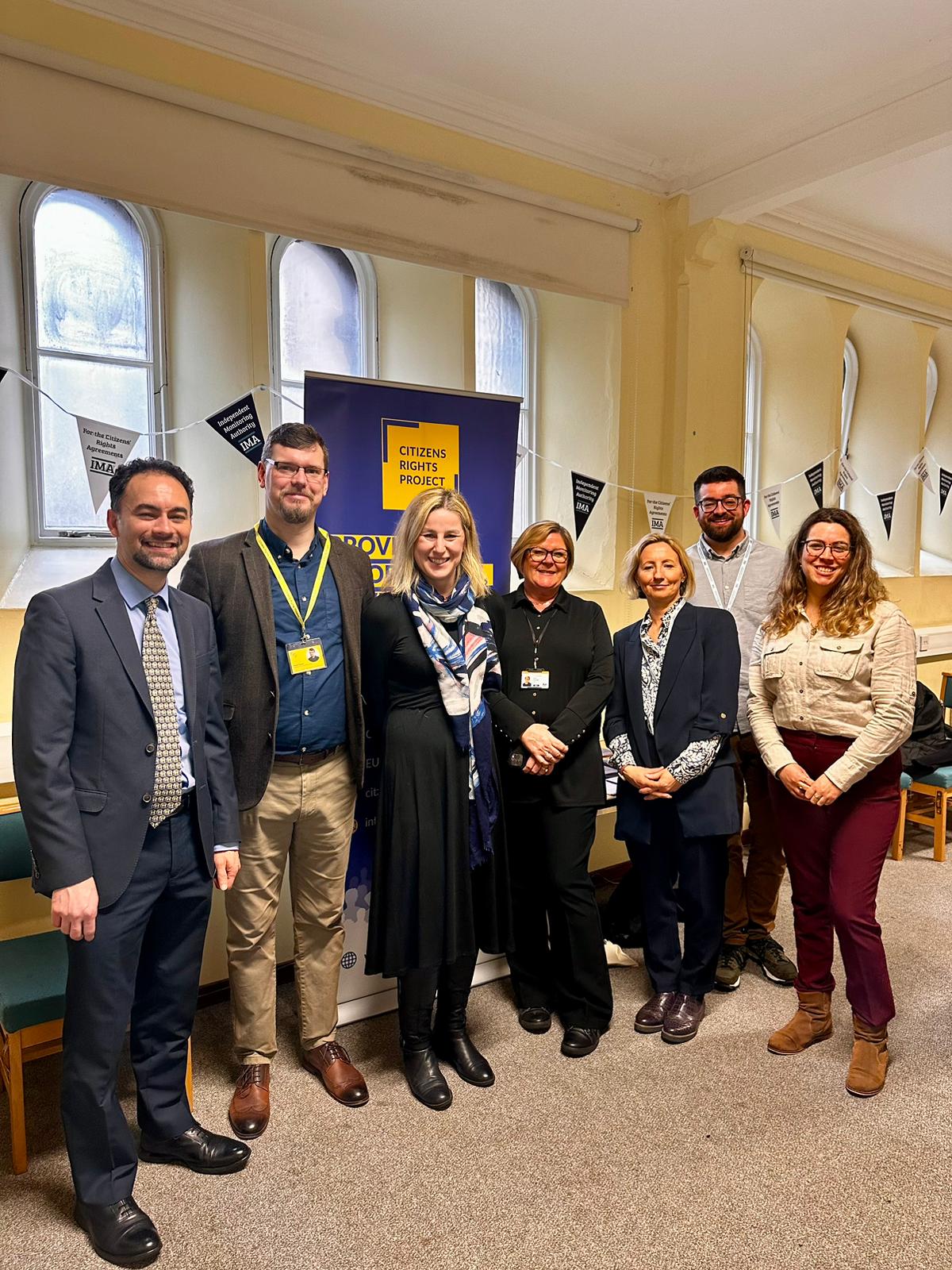
What is the IMA?
The Independent Monitoring Authority for Citizens’ Rights Agreements (IMA) is an independent non-departmental public body. Their works is to protect the rights of EU and EEA EFTA citizens, and their family members, in the UK and Gibraltar.
When the United Kingdom (UK) made the decision to exit the European Union (EU) a formal agreement was established to protect citizens whom the exit would impact upon. As part of that, IMA has been established to make sure the agreement is being properly upheld.
Essentially, when we, in Citizens Rights Project, are focused on individual cases, making sure that our clients are granted settled status, they are looking at the systemic problems with the EU Settlement Scheme making sure that the Home Office’s policy is fair and transparent.
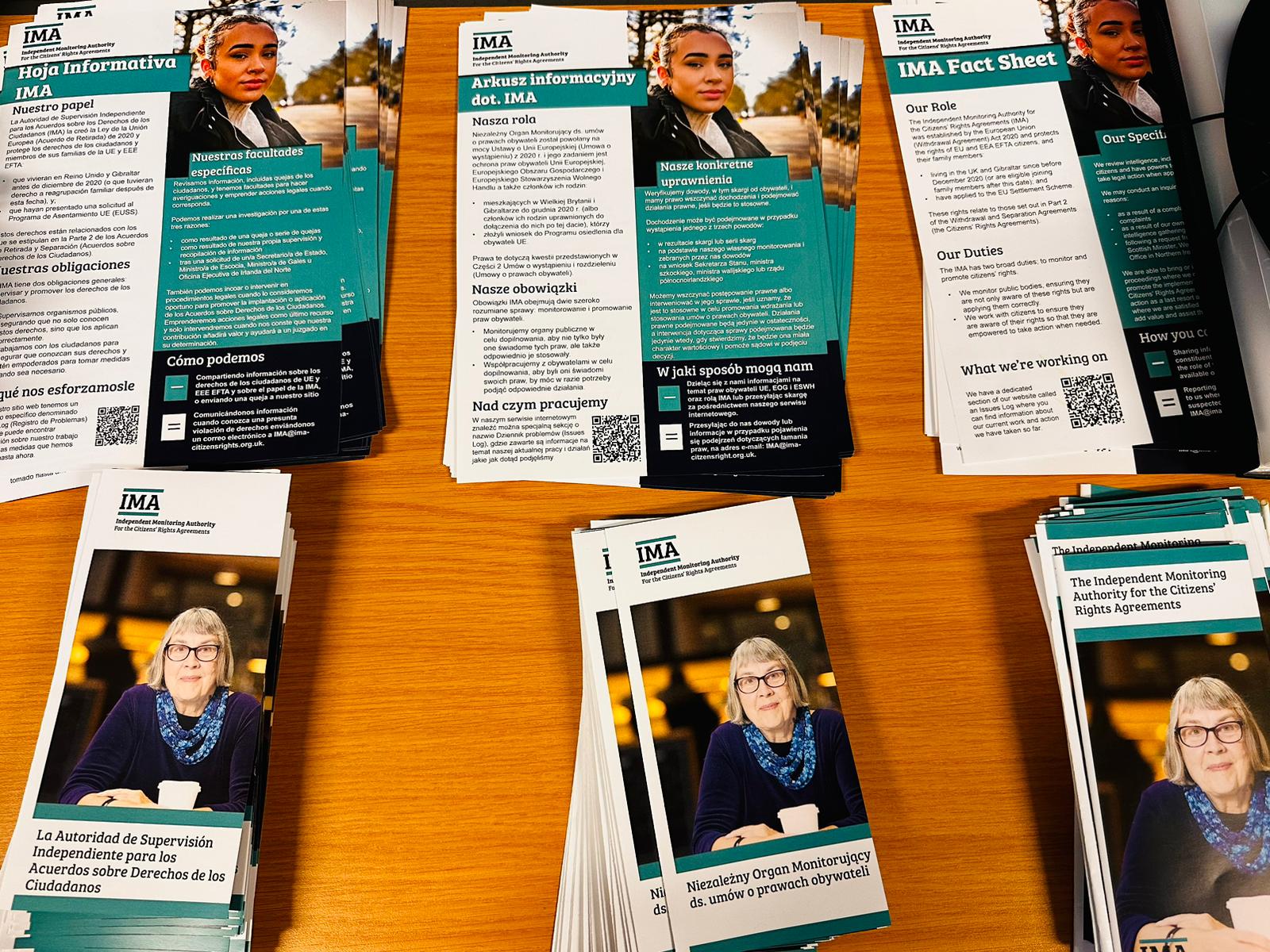
Discussion highlights: Late Applications, Status Transitions, and Family Reunification Among EU Nationals in Scotland
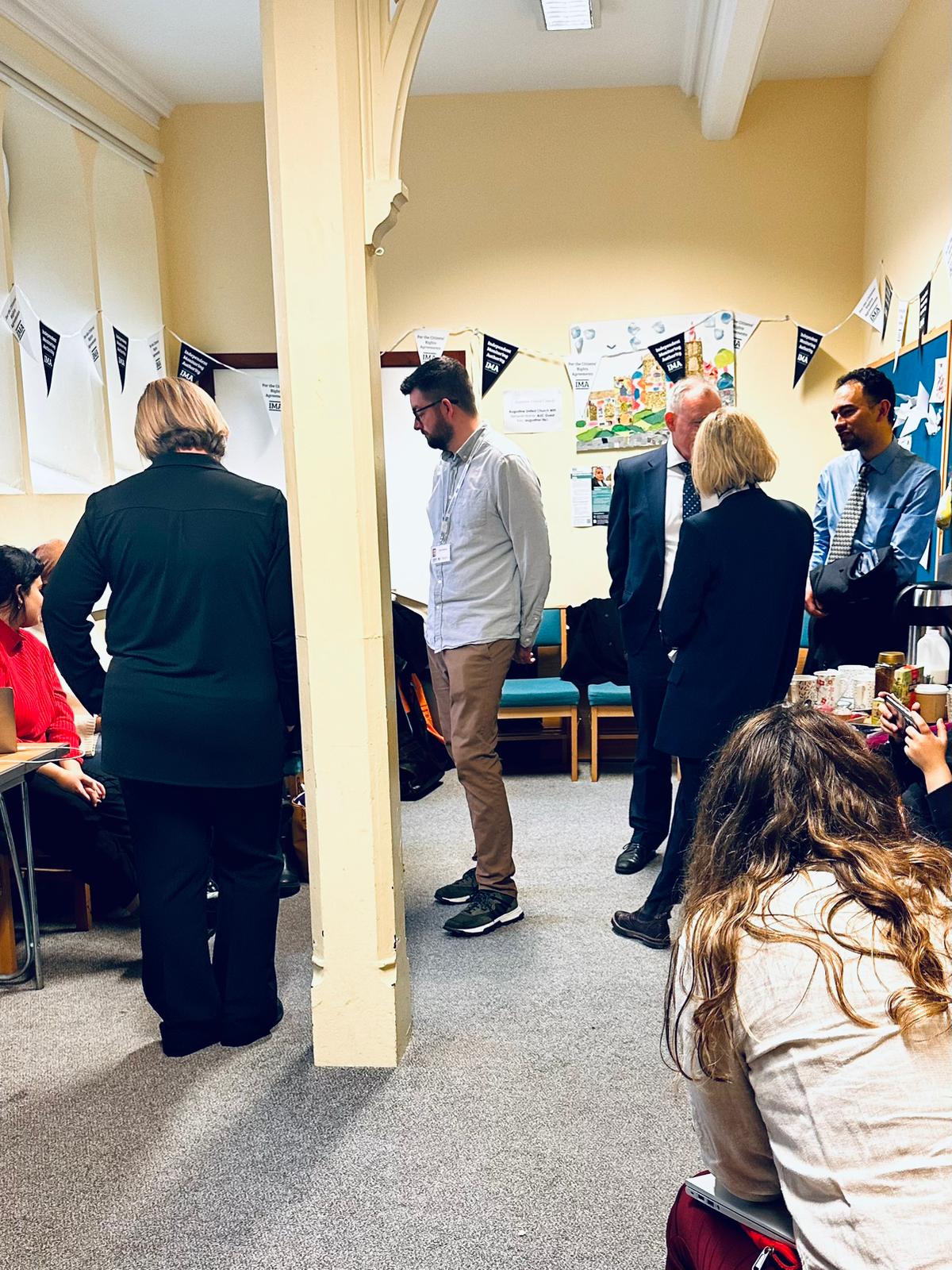 We emphasised that even over two years beyond the application deadline, we continue to assist numerous clients requiring late applications . Numerous individuals face difficulties either in initiating the application process independently or in their previous attempts, which proved unsuccessful due to challenges in navigating it effectively on their own. Nearly 70% of our supported clients faced at least one barrier or vulnerability, either limited English proficiency, limited IT skills, homelessness, health issues, and many more.
We emphasised that even over two years beyond the application deadline, we continue to assist numerous clients requiring late applications . Numerous individuals face difficulties either in initiating the application process independently or in their previous attempts, which proved unsuccessful due to challenges in navigating it effectively on their own. Nearly 70% of our supported clients faced at least one barrier or vulnerability, either limited English proficiency, limited IT skills, homelessness, health issues, and many more.
Changes to the immigration rules implemented by the Home Office in August 2023 created additional difficulties for people applying late, making it almost impossible to apply on their own. With limited access to the professional support, this these individuals find themselves in a very vulnerable position. Long-term residents who have consistently contributed to the workforce now find themselves vulnerable under the new rules. The inability to work or claim benefits, coupled with the challenge of presenting compelling arguments for late applications, may jeopardise their eligibility for the EU Settlement Scheme (EUSS). This predicament forces individuals who have built lives in the UK for 5, 10, or even 20 years to consider leaving the country. A poignant illustration of how these rule changes can impact applicants is evident in the Sky News report, highlighting a young woman facing deportation threats due to not applying for status during her underage years.
Another issue that will persist for a significant duration is the requirement to transition from pre-settled to settled status. For many individuals, this transition may pose even greater challenges than their initial application for pre-settled status. This will be particularly problematic for those with chaotic lifestyles, as they may struggle to gather evidence of their continuous residence. The COVID-19 pandemic compelled many individuals to spend extended periods outside the UK, necessitating explanations for these absences.
Additionally, the cases we receive for assisting with the transition to settled status predominantly involve vulnerable individuals who are unable to access public funds or homelessness support due to the restrictions associated with pre-settled status. Obtaining settled status urgently enables them to access much-needed assistance.
Furthermore, we have observed an increase in cases involving non-EU nationals holding pre-settled status obtained as family members of EU nationals. These individuals are now navigating divorce proceedings or contemplating them, sometimes due to domestic abuse, and are apprehensive about how this might impact their right to remain in the country.
Another prevalent challenge faced by EU nationals residing in Scotland is the process of bringing their family members to the UK. Difficulties in substantiating dependency, particularly for parents or children over 21 years old, are widespread. However, what truly saddens us is witnessing couples, often young individuals, who are unmarried or married after December 31, 2020, struggling to prove the durability of their relationship before that date. The COVID-19 pandemic has further complicated their circumstances, with some forced to live apart due to travel restrictions, exacerbating their ordeal.
Take action! Your rights matter
With this in mind, it’s essential for individuals facing challenges to know that support is available. If you’ve encountered unfair treatment or difficulties with the settlement process, don’t hesitate to reach out. The Independent Monitoring Authority (IMA) is here to ensure fairness for all EU and EEA EFTA citizens and their families in the UK . Your feedback is crucial in their efforts to address systemic issues and uphold your rights.
If you’ve experienced any issues, you can register and report a breach of your rights through the IMA’s complaint portal. Your voice matters, and together, we can work towards positive change.
